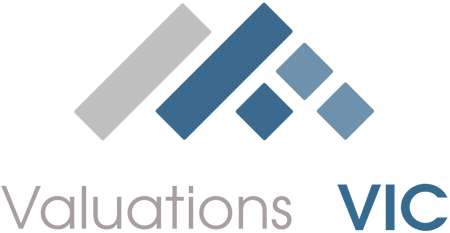
Buying your first home is exciting, but what happens if you have no idea where to start? It looks as simple as choosing a house you like, taking out a mortgage, moving in and paying off your mortgage, but it’s not. This is the order you’ll follow when buying a house, but there’s much more to it.
A property Valuer can help you narrow down your choices. With their expert opinion, you can decide which houses are worthwhile to invest in. If you jump right in to buy the first house you like without the proper knowledge, one of two things can happen.
One: You were fortunate enough to get a good deal and a mortgage that’ll suffice.
Two: You’ll find yourself in an unpleasant situation where things didn’t pan out as planned.
Unlike other purchases, you can’t just return or exchange a house. While there is an option to cancel or withdraw from a contract within a “cooling-off” period, it comes with a penalty. Smart home buyers first research, plan, and then execute.
The 5 best decisions that home buyers make
- Conducting in-depth research
- Hiring an Independent Valuer
- Considering all the hidden costs
- Exploring different neighbourhoods
- Choosing a house based on budget and liking
Now let’s take a deeper look into each.
Conducting in-depth research
Life-changing decisions are usually backed by research. Your decision to buy a home should be no different, but before researching different properties and neighbourhoods, you’ll need to consider the following:
- What motivates my decision to buy a house?
- Can I afford to own and maintain a property of my own?
- Can I commit to buying a house?
Once you’re sure that you’re ready for a long-term investment in property, you can begin your research. It should include finding out your credit score. Unless you’re paying with cash, your credit score will determine whether or not you qualify for a mortgage. Other funding options include:
- A guarantor home loan
- A Non-conforming home loan
- Low/alternative-documentation loan
Apart from funding, you’ll also need to learn more about the property market. The sale price of similar properties in the same location, the price for its size and features, and much more.
Hiring an independent valuer
An independent valuer can assist you when you are short-listing the properties you are interested in buying. They have the knowledge, training and experience to calculate the true market value of the houses. The report you get also highlights the positives and negatives of the property, like its size, location and physical condition.
Further down the line, they can also do an impartial assessment of the property you choose to buy in case your bank loan or mortgage security valuation is too low.
Considering all the hidden costs
Unfortunately, the cost of buying a house doesn’t end when you make a down payment and start paying off your mortgage or loan. Apart from the upfront costs, home buyers also have to pay for the following:
- Residential property valuation fees
- Pest and building inspection
- Conveyancing (legal) fees
- Mortgage application and transfer fees
- Mortgage insurance
- Stamp duty tax
Working with a real estate agent also incurs extra costs. For peace of mind after purchasing a property, there’s also home insurance you need to pay for as long as you own the house.
The list of hidden costs is endless. If you weren’t aware of all the hidden costs and your budget only accommodates the price of your deposit and mortgage, a new budget must be drawn up.
Exploring different neighbourhoods
For many, a home is a lifelong commitment. That’s why the location must be chosen with great care. You’ll need to think about accessibility, public transport, schools, shopping malls, hospitals, recreation, and a number of other things when choosing a location.
Health and safety are crucial for improving one’s quality of life. Because homes are usually bought for permanent residence, choosing to reside in a peaceful and welcoming community is a must. Sociable neighbours are a big bonus. Meeting the neighbours when you go to view different properties can also help you narrow down your options.
Choosing a house based on budget and taste
Your debt-to-income ratio determines which house you can afford to buy. While finances play a big role in your decision, you should not compromise too much on comfort and on what you like or are looking for in a house.
Is buying a house better than renting?
Choosing to rent or buy a house depends on a number of things, like your income, life plans and even your personality.
Couples who are ready to settle down and make a long-term commitment to a residential property prefer to buy. Individuals who are uncertain of their long-term career goals and future can rent an apartment or house. It is a more flexible and short-term responsibility that can be terminated upon request.
A lot of financial responsibilities come with owning a house. Most of them can be avoided when renting. Some of them include:
- Utility bills
- Maintenance costs
- Building insurance
- Taxes
While the saving aspect of renting is good, many believe that it is not sustainable as a permanent housing option.
Owning a house has its perks too. They include privacy and security. It is also seen as a token of wealth. While you are still alive, you can benefit from home equity and after your passing, the loved ones you leave behind can still have a roof over their heads and have the home transferred into their name as an inherited asset.
Should I buy a house now or wait?
The property market is volatile. The cost of property varies: from city to city and from season to season. Economic development affects the property market too. In spite of this, an investor who knows how much property is worth considers its value, not its price.
If you are financially able to invest in property, there is no right or wrong time. It is best to always keep an eye on market trends and interest rates on loan repayments, etc.
Summary
A lot of thought should go into buying a home. Smart home buyers study the property market before making a final decision to buy. They also seek advice from professionals in the industry.
A few factors must be well thought through before buying a house. Your income and budget have the final say over which house you can afford to buy.
Certified Practicing Valuers (CPVs) play an important role in helping you make smarter financial decisions. Their knowledge and expertise will benefit first-time home buyers. They can give advice on general property matters, as well as tax and residential property laws, just to name a few. Contact our team of experts for more advice on how to make smart home buying decisions.







